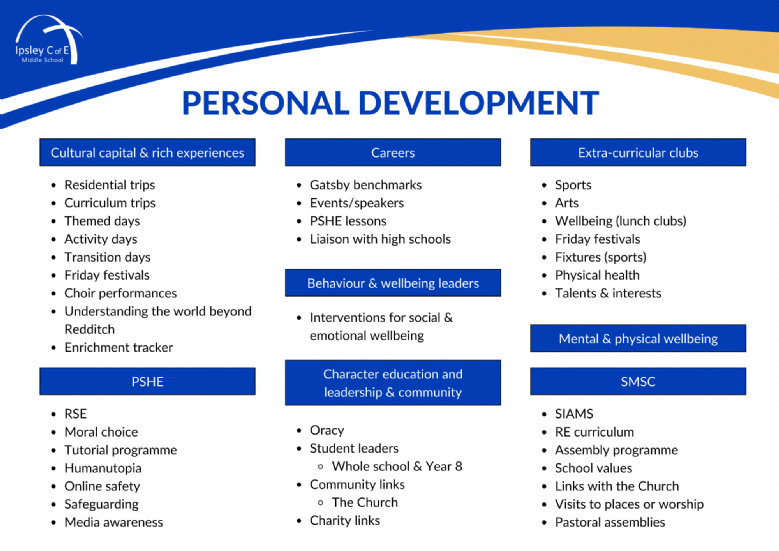Personal Development

Collective Worship at Ipsley
At Ipsley, daily collective worship takes different forms: formal assemblies in key stages or year groups, class tutor sessions, reflection time and school-wide activities to mark significant events such as Remembrance. We distinguish between faith collective worship and SMSC assemblies.
All classes / tutor groups are expected to contribute at least once a year to the collective worship/assembly programme (for both KS2 and KS3 within the cycle).
The structure of Collective Worship at Ipsley is TEAM. This is like a liturgy – a simple journey.
TEAM:
- Together: This provides them with the first opportunity to raise the curiosity of those assembled.
- Engage: Use a range of resources to engage pupils in the themes/key messages of the Collective Worship.
- Act: Allow time and opportunity for individual, group reflection and thought. Outline how pupils will be able to continue with their response in tutor time (reflection time).
- Message: Summarise worship in a meaningful, short and focussed message –which will transform what they have learnt into something they can do or think about. All Collective Worship should finish with a prayer (by the class or Young Leaders) and the Lord’s Prayer.
Class-based Collective Worship
Both Primary and Secondary phase teachers support collective worship as part of our school’s Christian distinctiveness. This includes supporting the work of the Young Leaders group to ensure all pupils have the opportunity to develop their spiritual and / or religious selves. Primary teachers can identify an appropriate time within their day for collective worship; secondary pupils will have collective worship and reflection opportunities within tutor time.
We expect all teachers to follow up on assembly themes, Bible stories or values within their collective worship reflection time, as this provides an opportunity for more personalised reflection and discussion. All pupils will have a reflection journal to support this time. Class-based worship can also be easily linked to local, national and world events. Discussing a news story, reflecting on the impact it has on others, thinking about how we can take action to help others are all useful precursors to personal reflection or prayer.

